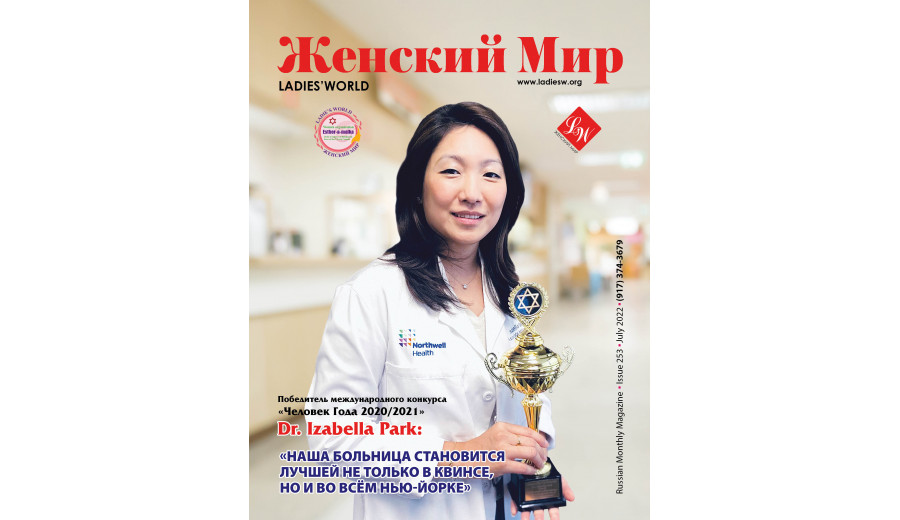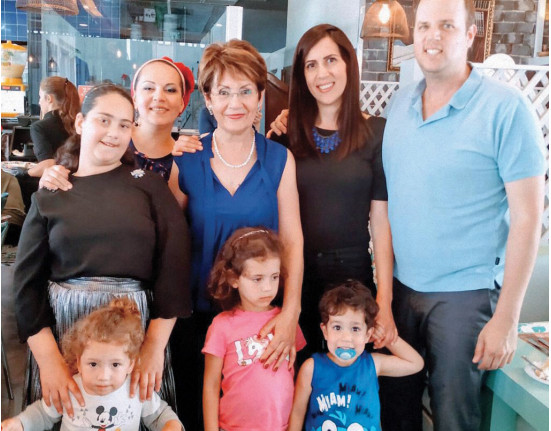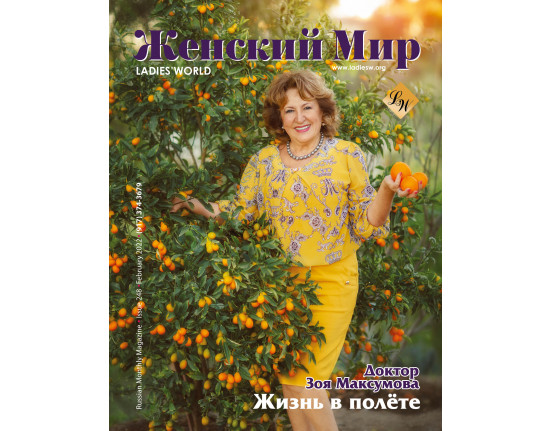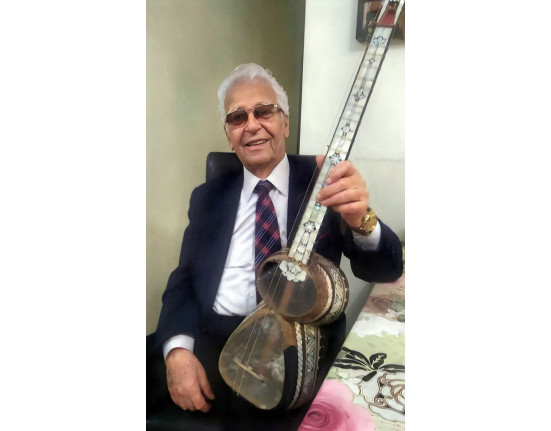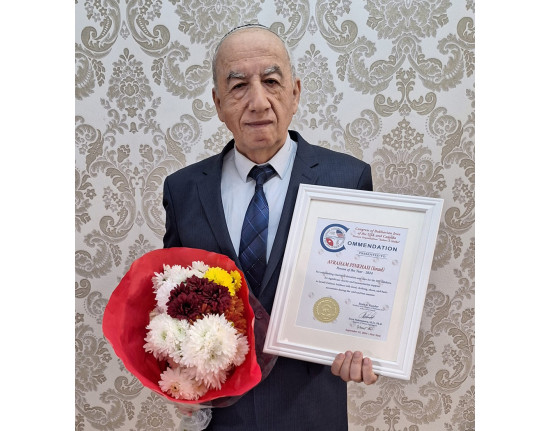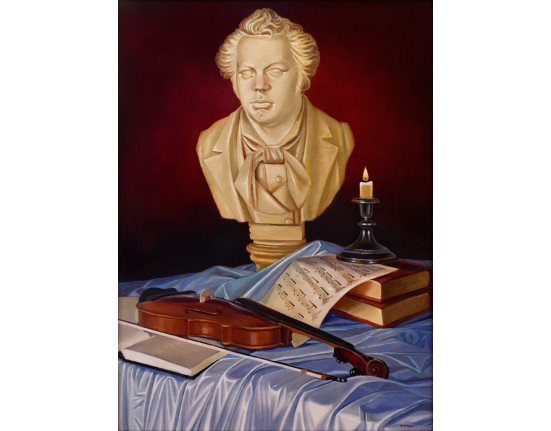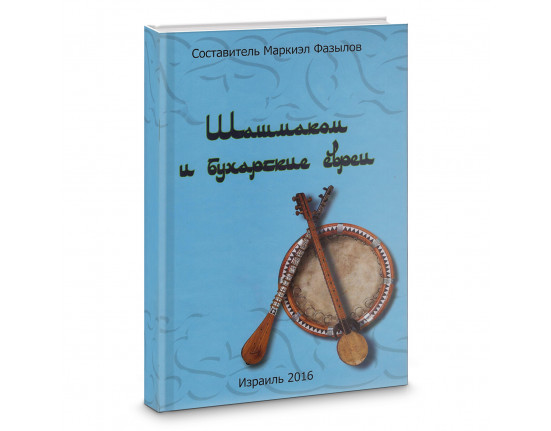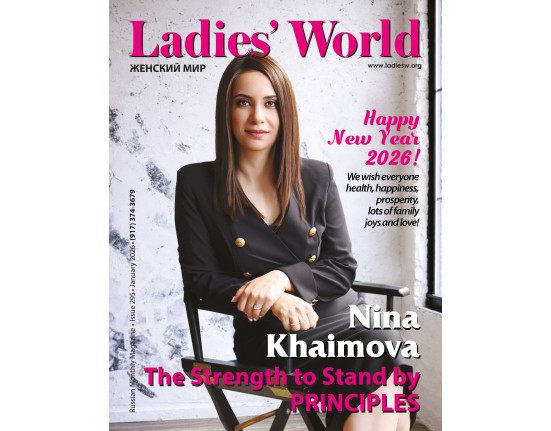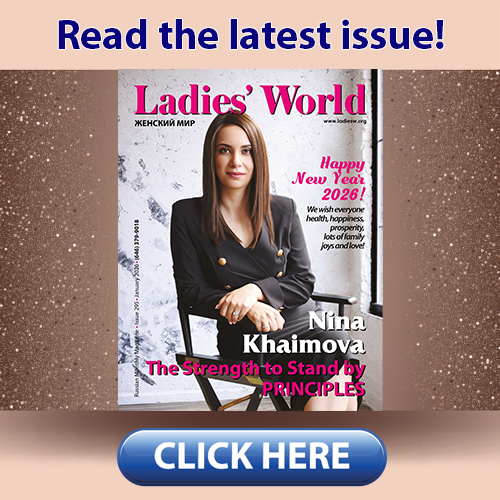Со страниц нескольких недавних номеров нашего журнала не сходит имя доктора Изабеллы Парк, что
неудивительно: д-р Парк вполне заслужено получила звание «Человек года 2020/2021»
за неоценимую медицинскую помощь общине бухарских евреев в период пандемии.
Именно благодаря её самоотверженной работе, трогательной заботе о пациентах,
высокому профессионализму и любви к тому делу, которому она посвятила всю себя,
имя доктора Изабеллы Парк известно
многим нашим читателям – членам общины, которые были или являются пациентами Long Island Jewish Forest Hills Hospital.
Я несказанно рада, что теперь и я лично познакомилась с этим человеком
редкого милосердия и доброты, «бесстрашным врачом», как её называют коллеги.
Время в увлекательной беседе с этой милой, спокойной, неординарной и внешне удивительно
хрупкой женщиной пролетело совершенно незаметно – мне было очень интересно
узнать, что так сильно сблизило этническую кореянку с еврейской общиной и как
повлияло появление д-ра Парк на инновации и кардинальные перемены в одной из
самых известных медицинских учреждений Квинса, где она является Associate Medical Director, Director of Geriatric & Palliative Care, Assistant Professor of Zucker School of Medicine at Hofstra/ Northwell University.
– Уважаемая доктор Парк, Ваше имя стало широко известно в
русскоязычной общине, когда Вас номинировали на звание «Человек Года 2020/2021»
в 10-ом международном конкурсе, организованном журналом «Женский Мир» под
эгидой Конгресса бухарских евреев и США и Канады. Как Вы к этому относитесь?
– Я благодарю вас за оказанную мне честь. Это было
памятно и невероятно волнительно. Сама церемония награждения и празднование
этого события превзошли все мои ожидания. Мой триумф со мной разделили мои
друзья и коллеги. Особенно мне хочется поблагодарить доктора Эрика Ильяева и менеджера «Home Care Services» Наталию Миракову за
выдвижение моей кандидатуры на участие в столь
престижном конкурсе.
– Доктор Парк, как давно Вы в Америке? Как нашли здесь
свой путь?
– Моя история очень похожа на многие иммигрантские семьи.
Мой отец приехал в Нью-Йорк 40 лет назад из Кореи со своими старшими братьями и
сестрами ради более благополучной жизни. Он начинал с нуля в новой стране с 50
долларами в кармане и без знания английского языка. Чтобы прокормить свою
молодую жену и детей, он работал в продуктовых магазинах в Манхэттене. А моя
мама помогала отцу ухаживать за моей бабушкой и моими двоюродными братьями. В
конце концов, отец купил продуктовый магазин в Jackson Heights. Мои братья
и я выросли в разных частях Квинса, причем в разных иммигрантских общинах. Хоть
я и родилась в Нью-Йорке, мой родной язык – корейский. По мере того как я начала
добиваться успехов в английском, мои родители стали полагаться только на меня: мне
приходилось говорить со страховыми компаниями, переводить фильмы и телепередачи,
т.е. стать для них важным звеном для коммуникаций в англоязычном обществе. Я
стала второй матерью для своих двух младших братьев. Сейчас мы все взрослые, я
замужем и у меня двое детей, да и у братьев есть уже свои дети, но от меня до
сих пор ждут, что я должна заботиться о семьях моих любимых братьев, что я
делаю с любовью. Ведь сплоченность – это
культура многих иммигрантов, и мы всегда заботимся друг о друге и сохраняем
свое культурное наследие. Мы, иммигранты, стараемся жить поближе друг к
другу, и для меня всегда ценно то, как
бухарская община объединяется в поддержку друг друга, не только в счастливые
моменты, но и в трудные времена. У вас много общего с корейской общиной: мы
уважаем и заботимся о старших и поддерживаем молодежь, празднуем культурные и
религиозные традиции с большим количеством еды, чтим наше наследие и традиции, сохраняем
наш язык. Мы, как и вы, мотивируем наших детей, чтоб они стали успешными в
жизни. Хотя моим родителям сейчас нравится, что я стала врачом, но в своё время
выбор моей медицинской карьеры был очень нелегким решением для меня. К слову, мои родители и сейчас продолжают
оказывать огромную помощь мне – без их поддержки я едва бы справилась с тяжелым
графиком работы, особенно в период пандемии.
– Что побудило Вас прийти в эту нелегкую профессию? Вы
сразу поняли, каким именно врачом Вы хотите стать?
–Я получила прекрасное
медицинское образование в New York College of Osteopathic Medicine. Во время резидентуры в Jamaica Hospital я поняла, что мне нравится лечить
и заботиться о пациенте в целом, решать сложные не только медицинские, но и
социальные проблемы. Особенно это касается пожилых людей, то есть это область гериатрии
и паллиативной медицины.
– Палиативная медицина – это что-то вроде хосписа?
– Нет, но они дополняют друг друга. Паллиативная помощь позволяет улучшить качество жизни пациентов (взрослых
и детей) и их семей, столкнувшихся с проблемами, связанными с опасными для
жизни заболеваниями, будь то
физические, психосоциальные или духовные.
Хосписное обслуживание – это помощь неизлечимо больным
людям в течение последних месяцев их жизни. Цель хосписа – повысить качество
жизни пациента и обеспечить непрерывный уход за ним, а также оказать поддержку
его семье. Хоспис скорее приносит временное облегчение, чем лечит. Хоспис
предусматривает оказание помощи независимо от того, находится ли человек в
больнице, приюте или дома.
Американская медицина – очень гуманная, но и не всегда
понятная, особенно для иммигрантов. К примеру, есть много аспектов здравохранения,
которые могут быть запутанными и сложными, когда в принятии решения тех или
иных моментов играют роль традиции, язык, культура и религия.
Я очень люблю свою работу и знаю, что могу помочь людям, если это, конечно,
в моих силах.
– Вы сейчас работаете в Long Island Jewish
Forest Hills. В прошлом этот госпиталь имел не очень хорошую репутацию.
Что кроме названия изменилось в этом медучреждении с Вашим приходом и в связи с
его переходом в новое ведомство? Произошли ли какие-то существенные изменения?
– Да, я начала работать в этом госпитале с 2016 года как Associate Medical Director по гериатрической и паллиативной помощи. Тогда он
переименовался из North Shore Forest Hills в Long Island Jewish Forest Hills Hospital. С тех пор произошло много положительных изменений. Полностью поменялось руководство,
которое настроено на создание новых программ, особенно это касается пожилых и
пациентов любых возрастов с хроническими заболеваниями. Мы сменили большой
состав врачей и средний медицинский персонал, причем на основе результатов их лечения
и опроса больных. Хорошие медицинские кадры влились в наш госпиталь, и наши
показатели уверенно идут вверх. Мы продолжаем работать с пациентами не только
до их выписки, но и после, когда они возвращаются домой или переводятся в
реабилитационные центры.
Я и моя команда делаем всё, чтобы усовершенствовать наши программы и вывести наш сервис на самый высокий уровень. Так мы получили для этого два денежных гранта Fan Fox и Leslie Samuels Foundation с тем, чтоб расширить наш сервис по уходу за пожилыми людьми. Мы – лидеры по ортопедической хирургии, у нас слаженная команда хирургов, терапевтов, анестезиологов, физиотерапевтов.
Мало кто знает, что у
нас одно из лучших родильных отделений, оснащенное новейшим оборудованием, где
работают специалисты высокого уровня Katz's Women Center с Long Island Jewish Hospital! Наши клинические программы охватывают широкий спектр специализированных
областей: в клинике введены программы
сложных операций с роботом как в усложненой гастроэнтерологии, так и в гинекологии
и урологии; у нас один из лучших кардиологических медицинских центров, где
производится установка кардиостимулятора. Созданы лицензированные Центры сердца
и инсульта (Heart and Stroke). Мы серьезно подняли уровень Emergency Care, по службе 911 к
нам везут неотложных больных, которых мы реально спасаем.
Более того, среди
наших работников есть много представителей
бухарской общины говорящих по-русски, и мы продолжаем набирать их больше,
чтобы пациентам было комфортнее общаться на родном языке.
Недавно мы получили золотую награду Beacon Gold Award за высокую оценку работы
нашего отделения интенсивной терапии.
Одним словом, наша больница выходит на новый высокий уровень
обслуживания, и мы уверены, что вскоре она станет лучшей больницей не только
Квинса, но и всего Нью-Йорка.
– Это важно знать всем
нашим пациентам и их семьям – не бойтесь просить врача, ответственного за лечение,
подробно объяснить, в чем выражается его медицинская помощь. Вы можете также попросить
ответственную медсестру помочь разобраться в проблемах, которые могут у вас
возникнуть. Во всех больницах есть команда специалистов, которые могут помочь с
любыми проблемами, возникшими у пациента и его семьи. Иногда даже я вмешиваюсь,
чтобы убедиться, что все действуют правильно.
– Что бы Вы хотели
пожелать читателям нашего журнала?
– Считаю,
что все люди хотят, чтобы их понимали и заботились о них с уважением и
достоинством. Как ответственный врач, я хочу обеспечить это для каждого
пациента. Жизнь каждого человека ценна и важна и для меня счастье и большая честь
– заботиться о каждом.
Моя миссия – помогать людям! Берегите
себя!
Читать весь номер журнала №253
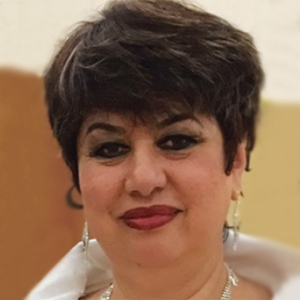 Элеонора Некталова
Элеонора Некталова

